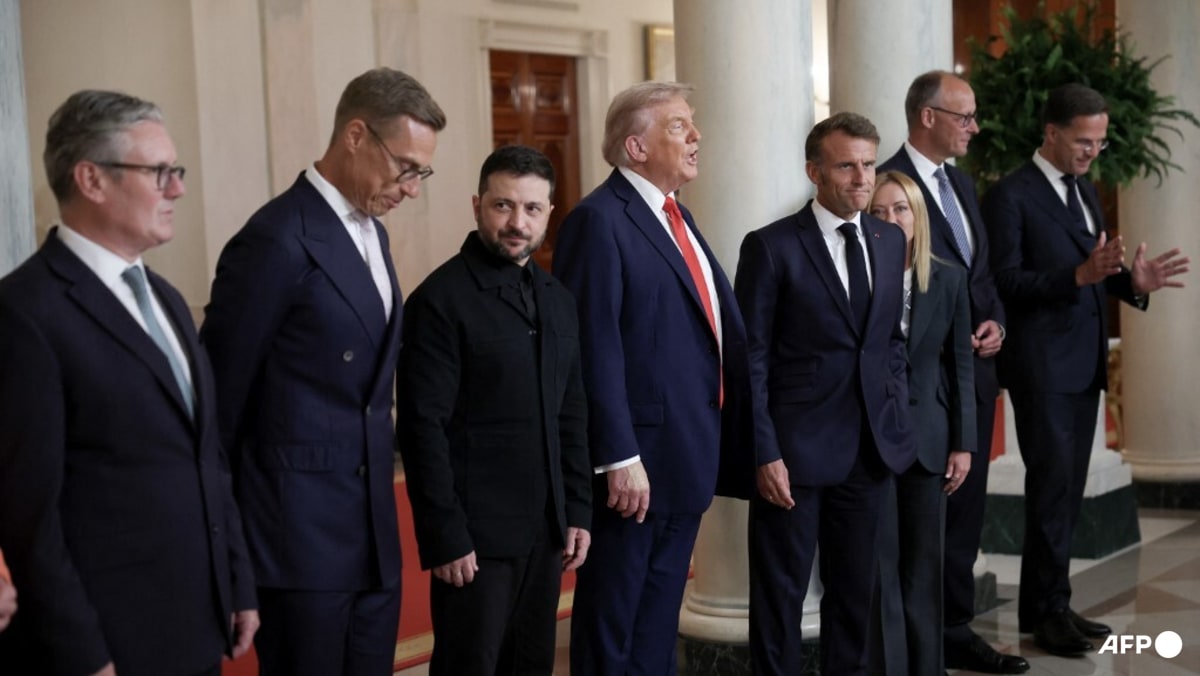Ukraine & Europe Confront US Peace Ultimatum
Kyiv, Ukraine –
Ukraine and its European allies are grappling with an urgent ultimatum from the United States, presenting a difficult choice to end the ongoing conflict with Russia. President Volodymyr Zelenskyy articulated the profound dilemma facing his nation, stating that Ukraine might have to choose between 'the loss of dignity' and 'the risk of losing a key partner.'
US Peace Plan Sparks Global Scramble
On Saturday, November 22, European leaders convened urgently to formulate counter-proposals after US President Donald Trump set a stringent deadline for Kyiv to accept a peace deal heavily favoring Russian demands. The 28-point US plan, which Russian leader Vladimir Putin has reportedly welcomed, proposes significant concessions from Ukraine. These include ceding territory, drastically reducing its military, and committing never to join NATO.
President Zelenskyy has publicly resisted aspects of this US framework, even as high-level discussions are slated to begin in Switzerland, led by his top aide, Andriy Yermak, to explore alternatives.
European Opposition and US Defense
In a clear sign of European concern, French President Emmanuel Macron, German Chancellor Friedrich Merz, and UK Prime Minister Keir Starmer held a sideline meeting during a G20 summit in South Africa. This huddle preceded a broader European gathering on the same critical issue. Starmer emphasized the goal of 'strengthening this plan for the next phase of negotiations,' while European Commission chief Ursula von der Leyen asserted the principle: 'there should be nothing about Ukraine without Ukraine.'
Meanwhile, US Vice President JD Vance defended the American initiative, dismissing criticism as either a 'misunderstanding of the framework or misstatement of some critical reality on the ground.' Vance argued against the 'fantasy that if we just give more money, more weapons, or more sanctions, victory is at hand.'
Ukraine's Perilous Crossroads
Zelenskyy described the current moment as one of the most challenging in Ukraine's history, vowing to present alternative proposals to Trump's plan. The nation faces mounting pressure on multiple fronts: a relentless Russian military, superior in numbers and equipment, slowly gaining ground; a brutal bombing campaign targeting energy infrastructure, plunging Ukrainians into one of the toughest winters of the war; and a sweeping domestic corruption probe in Kyiv exposing significant graft within the energy sector, fueling public outrage.
Russia's Gains and Threats
Under the draft US plan, Russia would not only gain official recognition for territories it controls but also be reintegrated into the global economy and rejoin the G8. Putin hailed the blueprint as a potential 'foundation' for peace but warned of further land seizures if Ukraine abandoned negotiations, claiming that the recent recapture of Kupiansk would be 'repeated in other key areas.' The Ukrainian army, however, denies the loss of Kupiansk, a city they had previously retaken after Russia's initial 2022 invasion.
Trump set a deadline of November 27 – US Thanksgiving – for Zelenskyy to agree, though he hinted at flexibility. "He'll have to like it, and if he doesn't like it, then you know, they should just keep fighting," Trump told reporters. "At some point he's going to have to accept something."
Humanitarian Crisis and Plan Details
The backdrop to these diplomatic maneuvers is a devastating humanitarian crisis. Just days before the deadline, Russia launched one of its deadliest attacks this year, hitting residential blocks in the western city of Ternopil, killing thirty-two people. The proposed US plan formalizes recognition of Moscow-controlled territories as 'de facto' Russian and demands Ukraine withdraw troops from parts of Donetsk. It also caps Ukraine's army at 600,000, explicitly rules out NATO membership, and prohibits NATO troop deployment on Ukrainian soil. In return, Ukraine would receive unspecified 'reliable security guarantees' and a reconstruction fund sourced from frozen Russian assets.
Zelenskyy's address underscored the gravity of the decision, highlighting the immense pressure on Ukraine and the potential consequences of either rejecting or accepting the US initiative.

